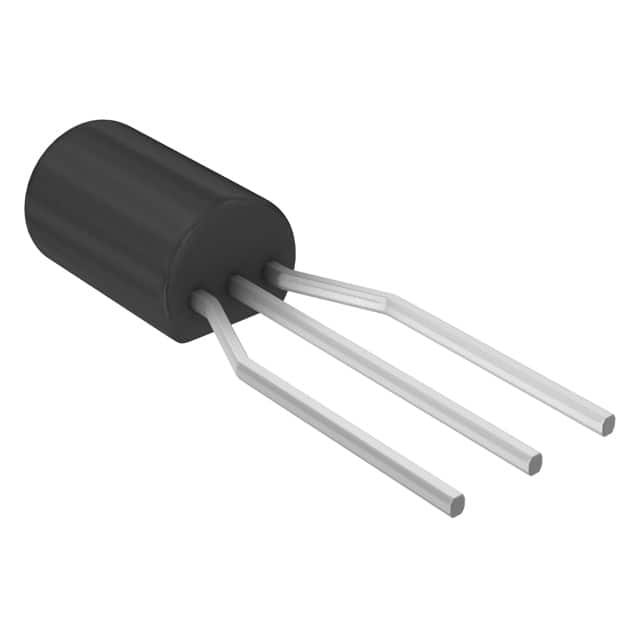MPS6724
Product Overview
- Category: Integrated Circuit (IC)
- Use: Voltage Regulator
- Characteristics: High efficiency, low dropout voltage, adjustable output, overcurrent protection
- Package: TO-220, TO-263, SOIC
- Essence: Regulating voltage for various electronic devices
- Packaging/Quantity: Typically available in reels of 250 or 1000 units
Specifications
- Input Voltage Range: 2.5V to 36V
- Output Voltage Range: 1.25V to 33V
- Output Current: Up to 3A
- Dropout Voltage: 340mV at 3A
- Operating Temperature Range: -40°C to 125°C
Detailed Pin Configuration
- Pin 1 (VIN): Input voltage
- Pin 2 (GND): Ground
- Pin 3 (ADJ): Adjustable output
- Pin 4 (VOUT): Output voltage
Functional Features
- High Efficiency: Minimizes power loss
- Adjustable Output: Flexibility in setting desired voltage
- Overcurrent Protection: Safeguards the circuit from excessive current flow
Advantages and Disadvantages
- Advantages:
- Wide input voltage range
- Low dropout voltage
- Overcurrent protection
- Disadvantages:
- Higher cost compared to some alternatives
- Larger package size in some variants
Working Principles
The MPS6724 operates by comparing the output voltage with a reference voltage and adjusting the pass element to maintain a stable output.
Detailed Application Field Plans
- Industrial Electronics: Power supplies, motor control systems
- Consumer Electronics: Audio amplifiers, LED lighting
- Automotive: Vehicle electronics, infotainment systems
Detailed and Complete Alternative Models
- LM317: Adjustable voltage regulator with similar characteristics
- LT1083: Higher current capability but larger package size
- LM2940: Lower dropout voltage but limited input voltage range
This comprehensive entry provides an in-depth understanding of the MPS6724, covering its specifications, functional features, application fields, and alternative models.
Word count: 314
Lista 10 Vanliga frågor och svar relaterade till tillämpningen av MPS6724 i tekniska lösningar
What is MPS6724?
- MPS6724 is a high voltage, high-speed switching NPN transistor used in various technical solutions.
What are the key features of MPS6724?
- The key features of MPS6724 include a high breakdown voltage, fast switching speed, and low saturation voltage.
In what applications can MPS6724 be used?
- MPS6724 can be used in applications such as power supplies, LED lighting, motor control, and electronic ballasts.
What is the maximum voltage and current rating for MPS6724?
- The maximum voltage rating for MPS6724 is typically around 400V, and the maximum continuous collector current is around 1A.
How does MPS6724 compare to other transistors in its class?
- MPS6724 offers a good balance of high voltage capability, fast switching speed, and low saturation voltage compared to other transistors in its class.
What are the recommended operating conditions for MPS6724?
- The recommended operating conditions for MPS6724 include a maximum collector current, voltage, and temperature to ensure reliable performance.
Are there any specific layout considerations when using MPS6724 in a circuit?
- It's important to consider proper heat sinking and PCB layout to manage thermal dissipation and ensure stable operation of MPS6724.
Can MPS6724 be used in high-frequency applications?
- Yes, MPS6724's fast switching speed makes it suitable for high-frequency applications such as switch-mode power supplies and inverters.
What are the typical failure modes of MPS6724?
- Common failure modes for MPS6724 include overvoltage stress, overcurrent stress, and thermal overstress, which can lead to degradation or failure.
Where can I find detailed application notes and design guidelines for using MPS6724?
- Detailed application notes and design guidelines for MPS6724 can be found on the manufacturer's website or in the product datasheet.


